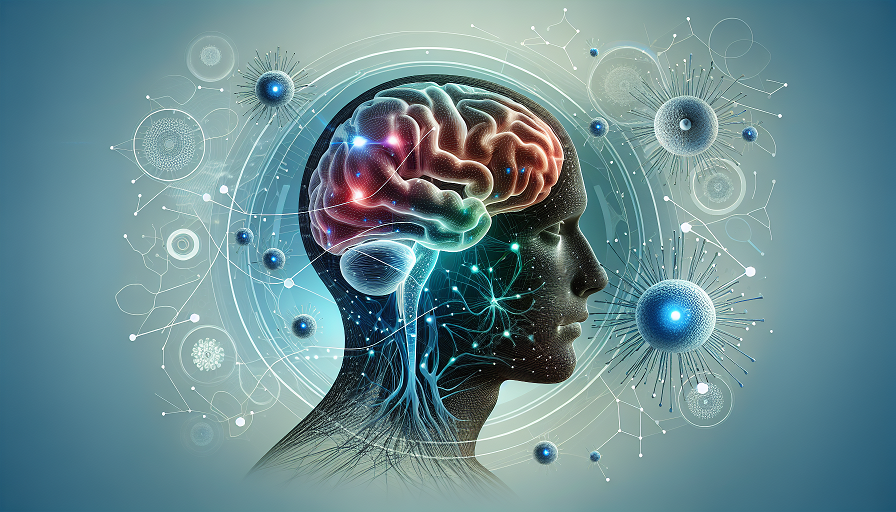
In the competitive world of academia, students are constantly looking for ways to improve their cognitive abilities. Whether it’s retaining information for exams or learning complex concepts, the demand for better memory and learning capacity has never been higher. Enter nootropics, a class of supplements and substances designed to enhance brain function.
But how exactly do nootropics influence memory and learning? Are these brain boosters a reliable tool for students, or are they just a modern-day placebo? Here we look at the science behind nootropics, their impact on memory and learning, and how students can use them responsibly to achieve academic success.
Contents
Understanding Memory and Learning
Before diving into how nootropics work, it’s essential to understand the basic processes of memory and learning. The brain uses a network of neurons to process, store, and retrieve information. This involves three key stages:
- Encoding: Information is perceived and processed, turning sensory input into a format the brain can store.
- Storage: The encoded information is saved in either short-term or long-term memory.
- Retrieval: Stored information is accessed and used, such as recalling an answer during an exam.
Learning, on the other hand, is the process of acquiring new knowledge or skills through experience, study, or teaching. Effective learning depends on robust memory systems, attention, and the brain’s ability to adapt—a quality known as plasticity.
Nootropics interact with these processes by influencing neurotransmitters, neural pathways, and overall brain health, creating an environment more conducive to memory and learning.
How Nootropics Enhance Memory
Supporting Neural Communication
Neurons communicate through synapses, where chemical signals called neurotransmitters are released. Nootropics like Phosphatidylserine and racetams enhance synaptic efficiency, improving how quickly and accurately information is transmitted within the brain. This can boost memory consolidation and retrieval.
Promoting Neurogenesis
Neurogenesis—the growth of new neurons—is essential for memory and learning. Compounds like Lion’s Mane Mushroom stimulate the production of Nerve Growth Factor (NGF), a protein that supports the development and repair of brain cells. By promoting a healthier neural network, these nootropics improve long-term memory storage and retrieval.
Enhancing Plasticity
Brain plasticity, or neuroplasticity, is the ability of the brain to adapt and reorganize itself. This quality is crucial for learning new skills or adapting to new information. Nootropics such as Bacopa Monnieri enhance plasticity by reducing oxidative stress and promoting synaptic growth, making the brain more adaptable and efficient.
Boosting Energy Supply
Memory requires energy, and the brain consumes about 20% of the body’s energy supply. Nootropics like Acetyl-L-Carnitine (ALCAR) and ginkgo biloba improve cerebral blood flow and mitochondrial function, ensuring neurons have the energy needed for optimal performance.
How Nootropics Improve Learning
Enhancing Focus and Attention
Focus is a prerequisite for effective learning. Without sustained attention, encoding new information becomes a challenge. Nootropics like caffeine and L-theanine are popular for their ability to improve focus. Together, they create a calm yet alert mental state, ideal for absorbing and processing information.
Reducing Stress and Anxiety
High levels of stress and anxiety can impair learning by disrupting the brain’s ability to encode and retrieve information. Adaptogens like Ashwagandha and Rhodiola Rosea help regulate cortisol, the stress hormone, creating a more conducive mental environment for learning.
Improving Sleep Quality
Sleep plays a vital role in memory consolidation, where information learned during the day is transferred to long-term memory. Nootropics like Magnesium L-Threonate support better sleep quality, ensuring the brain has adequate time to process and store information.
Scientific Evidence Supporting Nootropics
The effectiveness of nootropics has been the subject of numerous scientific studies. Here are some highlights:
- Bacopa Monnieri: A 2016 study found that Bacopa improved memory and cognitive function in healthy adults, particularly in the retention of newly learned information.
- Lion’s Mane Mushroom: Research has shown that Lion’s Mane promotes neurogenesis and may improve memory and cognitive performance over time.
- Phosphatidylserine: This compound has been shown to enhance memory and reduce cognitive decline in older adults, with potential benefits for younger users as well.
While many of these findings are promising, it’s important to note that individual responses to nootropics can vary, and more research is needed to fully understand their long-term effects.
Tips for Using Nootropics Effectively
To maximize the benefits of nootropics for memory and learning, follow these guidelines:
- Start Small: Begin with a single nootropic and a low dose to observe its effects before experimenting with combinations, or “stacks.”
- Choose Quality Products: Opt for reputable brands with transparent ingredient sourcing and third-party testing.
- Pair with Healthy Habits: Combine nootropics with a balanced diet, regular exercise, and adequate sleep for the best results.
- Stay Consistent: Some nootropics, like Bacopa Monnieri, require consistent use over several weeks to reach their full potential.
Potential Risks and Limitations
While nootropics can offer significant benefits, they are not without risks. Potential side effects include headaches, digestive issues, and, in rare cases, interactions with medications. Always consult a healthcare provider before starting a new supplement, especially if you have underlying health conditions.
Additionally, nootropics should be seen as tools, not shortcuts. They can enhance your efforts but cannot replace effective study habits or discipline.
Nootropics have the potential to significantly impact memory and learning, making them valuable tools for students seeking to optimize their academic performance. By supporting neural communication, promoting neurogenesis, and enhancing focus, these supplements can help unlock the brain’s full potential.
However, responsible use is key. By starting with well-researched compounds, setting realistic expectations, and integrating nootropics into a balanced lifestyle, students can make the most of these cognitive enhancers. The path to better memory and learning is not a sprint but a marathon—and with the right approach, nootropics can be a powerful ally in your academic journey.

